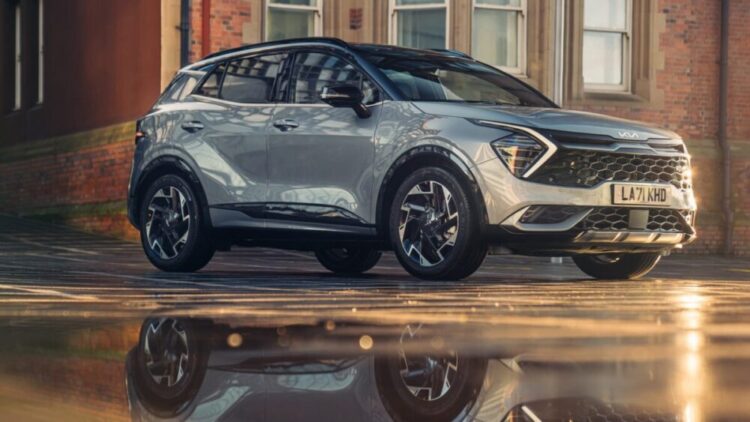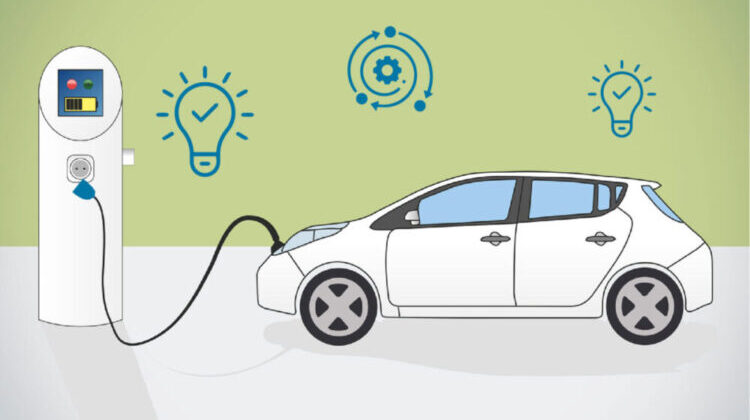In today’s fast-paced world, it is easy to forget our impact on the environment. Our daily habits, such as driving our cars, can contribute to harmful emissions that damage the air we breathe and the planet we depend on.
This is where choosing an environmentally friendly car can make a real difference. Not only do these cars reduce our carbon footprint, but they also have a host of other benefits. From saving money on gas to promoting a healthier lifestyle, environmentally friendly cars are a smart choice for those looking to impact our world positively.
Exploring Hybrid Cars: How They Work and Their Environmental Impact

Source: carmagazine.co.uk
Hybrid vehicles have been touted as a solution to rising fuel prices and increasing environmental concerns. These eco-friendly cars use a combination of gasoline and electric power to operate, making them more efficient than traditional vehicles.
The hybrid technology allows the car to switch between the gasoline engine and electric motor when idle or cruising at low speeds. This results in lower emissions and a reduced carbon footprint. As a result, hybrid vehicles are becoming increasingly popular among consumers searching for ways to lead a more sustainable lifestyle.
The Rise of Electric Vehicles: Benefits and Drawbacks for the Environment
The rise of electric vehicles, as evidenced by the variety of models showcased on platforms like cedricthecarguy.com, is a testament to the increasing awareness and commitment towards environmental sustainability.
Electric vehicles offer substantial benefits, including significant reductions in greenhouse gas emissions compared to conventional petrol or diesel cars. This green revolution in transportation helps combat climate change and improve air quality.
However, the environmental impact of electric vehicles is not entirely positive. The production process of these vehicles, particularly the manufacturing of lithium-ion batteries, is energy-intensive and can contribute to environmental degradation.
Additionally, the electricity used to charge these vehicles often comes from non-renewable resources, which somewhat diminishes the environmental benefits. Therefore, while the rise of electric vehicles is a leap forward in our quest for a sustainable future, it also presents new challenges that must be addressed.
Comparing Emissions: Analyzing the Environmental Impact of Hybrid and Electric Cars

Source: cars.com
As environmental concerns become increasingly urgent, many drivers turn to alternative fuel vehicles for a greener driving experience. With options like hybrid and electric cars on the market, it is important to consider the differences in their environmental impact.
While both types of vehicles emit significantly less greenhouse gases than traditional gas-powered cars, the way they do so is distinct. Hybrids rely on a combination of gas and electricity to reduce emissions, while electric cars rely solely on electricity.
Fuel Efficiency and Range: Which Option Offers a Greener Solution?
When comparing the environmental impact of hybrid and electric cars, fuel efficiency and range are important factors to consider. Generally speaking, electric vehicles offer a greater range than hybrids, allowing for longer trips without needing to stop for refueling.
Additionally, electric cars are more fuel efficient, with fewer emissions than either gas- or diesel-powered cars. Electric vehicles offer an effective solution for saving money on fuel and reducing our carbon footprint.
Assessing Energy Sources: Electric Grid vs. Gasoline Production

Source: cnn.com
When switching to an environmentally friendly car, it is important to consider the energy sources that power it. Electric vehicles require electricity from the grid, powered by renewable sources like solar and wind or non-renewable sources like coal and natural gas.
On the other hand, gasoline-powered cars rely on oil production as their primary energy source. Ultimately, drivers need to assess their situation and determine which type of car will offer the most environmentally responsible solution.
Battery Life and Recycling: Sustainability Considerations for Electric Cars
The sustainability of electric vehicles goes beyond the emissions they produce. Battery life and recycling are two major factors that need to be considered. On average, an electric car’s battery will last 7-8 years before needing to be replaced; however, some batteries can last up to 11 years or more, depending on usage and maintenance.
Therefore, it is important to properly maintain an electric vehicle and look into options for recycling the battery when it reaches the end of its lifespan. Additionally, drivers should consider investing in a battery with higher capacity to extend its life and reduce the need for replacement.
Cost Considerations: Balancing Environmental Impact with Affordability

Source: accept.aseanenergy.org
For many drivers, cost is an important factor when choosing a car. Electric vehicles are known for their high sticker price but offer long-term savings on fuel and maintenance. On the other hand, hybrids are typically more affordable upfront but may cost more in the long run due to higher fuel costs than traditional gasoline cars.
Government Incentives and Policies: Encouraging Green Vehicle Adoption
Incentives and government policies can also encourage consumers to switch to green vehicles. In many countries, electric cars are eligible for tax credits or rebates that make them more affordable.
Furthermore, governments can set emissions standards and support infrastructure investments such as charging stations to help facilitate the adoption of eco-friendly cars. Ultimately, these incentives and policies play a key role in helping drivers switch to greener vehicles.
Conclusion: Choosing the Best Option for a Sustainable Future
In conclusion, choosing the right green vehicle can be a complex decision. With their improved efficiency, lower emissions, and government incentives, electric cars offer an attractive option for drivers looking to make their transportation more sustainable. However, hybrids are still an effective solution for reducing greenhouse gases and come with fewer upfront costs.
Ultimately, choosing which type of alternative fuel car is best for you depends on your budget, lifestyle needs, and environmental impact. Whichever option you choose, taking steps towards a greener future can help make the transition smoother and accelerate the move towards a more sustainable world.

























